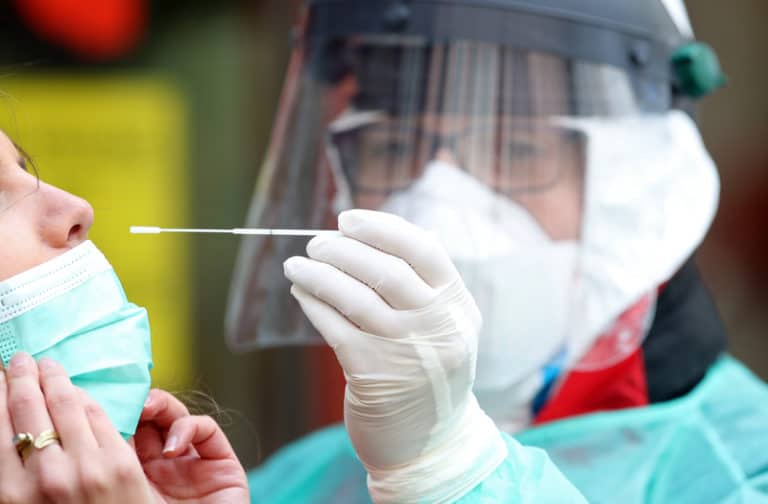Study: Woman Suffers Brain Injury from COVID Cotton Swab Test


by Brian Shilhavy
Editor, Health Impact News
Back in August this year we published an article written by Makia Freeman of The Freedom Articles titled:
Are the COVID Tests a Way to Surreptitiously Infect or Implant People?
The very long cotton swab used for some of these COVID tests is very unusual, prompting speculation as to why such a long cotton swab is necessary.
I asked a retired medical doctor at that time who is known to Health Impact News about what Makia was saying in the article regarding the need for long cotton swabs penetrating so far into the body, and this doctor replied:
There is no valid reason for swabbing the naso-pharynx so deeply that it causes pain and injury to the extreme back and roof of the nose. Whatever microorganisms are there are distributed throughout the entire nose and throat.
They are supposedly easily communicated by a sneeze, hence the “need” for masks.. You don’t have to go digging for them. You could even blow your nose into a tissue and that would be a sufficient sample to culture.
Yesterday, October 1, 2020, a new study was published in JAMA Otolaryngology, documenting one case where a woman suffered a brain fluid leak after doctors punctured the lining during a coronavirus test.
Surgery was required to repair the leak.
The title of the study is Cerebrospinal Fluid Leak After Nasal Swab Testing for Coronavirus Disease 2019.
From the study:
In March 2020, coronavirus disease 2019 (COVID-19) emerged as a global pandemic. Testing for presence of active severe acute respiratory syndrome coronavirus 2 (SARS-CoV-2) infection is 1 pillar of the global response.
In particular, nasopharyngeal, anterior nasal, and midturbinate swabs are 3 of the 5 methods for initial diagnostic specimen collection recommended by the US Centers for Disease Control and Prevention (CDC).
However, complications associated with nasal swab testing are not well characterized. We describe the first case of a cerebrospinal fluid (CSF) leak after nasal testing for COVID-19, to our knowledge.
Capacity for COVID-19 testing is increasing in the US, with plans to ramp up to as many as 6 million tests per day by the end of 2020.
Although it is now routine in the US to rule out COVID-19 prior to elective surgeries, for many hospital admissions, and for symptomatic individuals, additional testing may help contain the spread of COVID-19.
As the number of daily COVID-19 nasal and nasopharyngeal swab specimen collection procedures increases, a greater burden is placed on the health care system to properly train clinicians and even the general public to safely perform nasal and nasopharyngeal swab testing. High-quality instruction on how to properly obtain an adequate nasopharyngeal specimen for testing is available.
However, adverse events may still occur owing to complex and delicate anatomy. Such complications have not been well described in the existing literature.
This case of iatrogenic CSF leak from nasal swab testing for COVID-19 illustrates that prior surgical intervention, or pathology that distorts normal nasal anatomy, may increase the risk of adverse events associated with nasal testing for respiratory pathogens, including COVID-19.
One should consider alternative methods to nasal screening in patients with known prior skull base defects, history of sinus or skull base surgery, or predisposing conditions to skull base erosion.
Comment on this article at Health Impact News
Having problems receiving our newsletters? See:
How to Beat Internet Censorship and Create Your Own Newsfeed
Original source: https://medicalkidnap.com/2020/10/02/study-woman-suffers-brain-injury-from-covid-cotton-swab-test/








